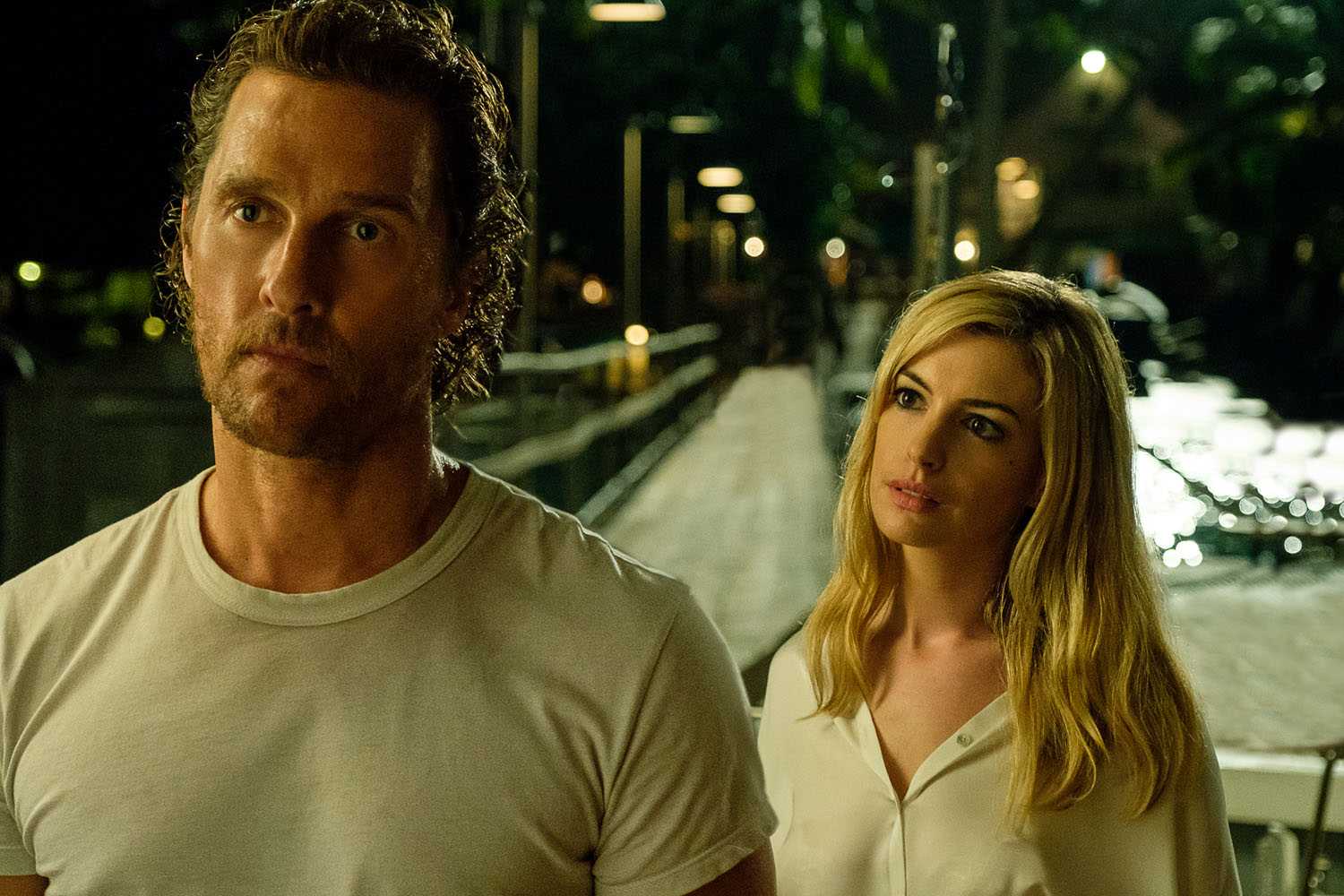[With Serenity now on Blu-ray and DVD, we’re reposting this explainer. If you haven’t seen this bonkers movie yet, check it out and then come back and read this article.]
Spoilers ahead for Serenity.
As I said in my review, Serenity is not the film you’re expecting. I think that’s pretty great. In an age where movies are pre-sold within an inch of their lives, studios live or die on formulaic storytelling, and trailers give away the majority of the plot, it’s genuinely thrilling that a film can come out and surprise its audience. Serenity does just that when it reveals what looked liked a sultry thriller of murder, sex, and deceit turned out to be a traumatized teenager’s video game.
That being said, it’s not enough to simply shock the audience. The question we have to look at with Serenity’s twist is “Does it work?” and I believe that, for the most part, it does. It’s a major leap to bridge the story of a fisherman who compulsively needs to fish to a story about that man’s son who wants to murder his abusive stepdad. And yet that leap ends up giving far more weight to the overall story.
The plot of Serenity it not about Baker Dill (Matthew McConaughey) trying to catch a big fish until his femme fatale ex Karen (Anne Hathaway) comes back into his life with an offer to kill her abusive ex Frank (Jason Clarke) in exchange for $10 million. It’s about Baker’s son Patrick (Rafael Sayegh) weighing whether he should change the game from fishing to killing Frank, an act that reflects Patrick’s real-world desire.
I agree that it’s a bonkers twist, and it recontextualizes the rest of the movie. Yes, it is very weird that Patrick, as the game’s creator, has scenes where the avatar for his father (who died heroically in the Iraq War in the real world) has sex for money with an attractive older woman (Diane Lane) on the island. It’s weird that most of the “plot points” in Patrick’s game seem drawn from a sleazy B-movie.
And yet I’m inclined to believe that if the twist had been Patrick’s writing a novel, audiences would be more willing to accept the twist. But a novel wouldn’t quite fit in a story about choice. Video games present the fascinating paradox of choice and compulsion. The player has choice, but the avatar must follow the player’s decision. In a novel, there’s only one choice and only one path. To see Baker wrestle with the moral choice—do you kill an evil man if it means protecting someone you love—is a reflection of Patrick’s choice.
Serenity isn’t meant to be a treatise on video games as much as it’s using the medium of video games to express a thematic point similar to how Inception isn’t about dream logic as much as using dreams to tell a story with clearly defined rules. Writer-director Steven Knight picked the right medium for Patrick because it tells us about Patrick’s means of expression.
And that means of expression is surprisingly sad. Strip away the tawdry B-movie and you have a story about a son so desperate to connect to a father he never knew that he had to invent him in a game and then try to use him as a moral compass. For all the control the video game gives Patrick, he’s a kid who has no control. He doesn’t have the control to protect himself or Karen or bring his dad back from the dead.
For some, the twist in Serenity is a bridge too far. You can’t go from an overwrought thriller to a Black Mirror episode. But for me, the twist is what makes Serenity and elevates it into a story worth caring about even if it requires the craziest twist to get there.

